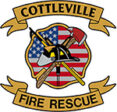You can go to lookups.sccmo.org/assessor
The Fire District does NOT have the ability to assist with this. St. Charles County Government does have a recycling facility in the area. It is Recycle Works and is located at 60 Triad South Drive St. Charles, MO 63304. More information can be found at https://www.sccmo.org/892/Recycle-Works---Central
Fire Departments are part of a municipal government and are funded by the general revenue of the city. They are over seen by the same municipal council that over sees all city departments, and their service area falls within their municipal boundaries. Districts are special taxing agencies falling under the Missouri 321 Statutes that service one or more municipalities as well as unincorporated county. Their funding is derived from personal property taxes collected within district boundaries. Fire Districts are over seen by a board of directors elected at large by the citizens of the district. They are not part of any municipal or county government.
Fire/Rescue training, emergency medical services training, hydrant testing, fire hose tests, business inspections, station tours, community presentations and displays, and station maintenance to name a few things.
This is something that the Water Department does not allow.
Recent reports have shown that many times children do not hear smoke detectors whether their doors are open or closed. Studies have also shown that if children do wake up, they do not act in accordance with what they were taught. The only way to ensure a proper response from your children is to set up and practice Exit Drills In The Home. This would include setting off smoke alarms at night when children are sleeping as further practice. We recommend at least practicing your exit drill twice a year. For further information, see our Exit Drills In The Home page on this web-site. Remember, practice makes perfect.
Sleeping with your door shut can give you up to an extra fifteen minutes to escape a house fire. Having the door closed prevents smoke from readily entering your bedroom and acts as a short term barrier to the fire. In a fire situation, if you cannot get out the door, go to the window and yell or hang something out the window to attract attention. Additionally, placing sheets, towels, clothing, etc. at the bottom of the door will aid in keeping smoke out of the room while you are at the window awaiting rescuers.
Fire trucks respond for a number of reasons:
- The dispatch center in St. Charles County uses an Emergency Medical Dispatch protocol to assign calls. Depending on the severity assigned, a fire truck is sent because the medically trained crew can provide needed assistance to the two paramedics on the ambulance.
- No one truly knows how severe the call really is until they arrive on the scene. For your safety, we work from a premise that it's better to be safe and send apparatus than sorry that we don't have the man power on scene to take care of you.
- Man power is another reason fire trucks respond. Many patients are in locations or are of such a size that two people cannot get the patient to the ambulance. The stretcher alone weighs 90 lbs. This is a concern for the safety of fire/rescue crews as well as the patient.
Business inspections are performed in an effort to cut down on the loss of life and property. Additionally, inspections give firefighters an opportunity to become familiar with buildings in their areas before they respond to one for an emergency.
If you see an emergency vehicle approaching you should pull to the right shoulder of the road.
No, CFPD only requires commercial properties to have occupancy inspections performed. Ensure you check with your city/county inspectors inspectors for their requirements on residential sales.
Regence Machine Readable Files
This link leads to the machine-readable files that are made available in response to the federal Transparency in Coverage Rule and includes negotiated service rates and out-of-network allowed amounts between health plans and healthcare providers. The machine readable files are formatted to allow researchers, regulators, and application developers to more easily access and analyze data.
NWFFT EIN 46-1416156.
